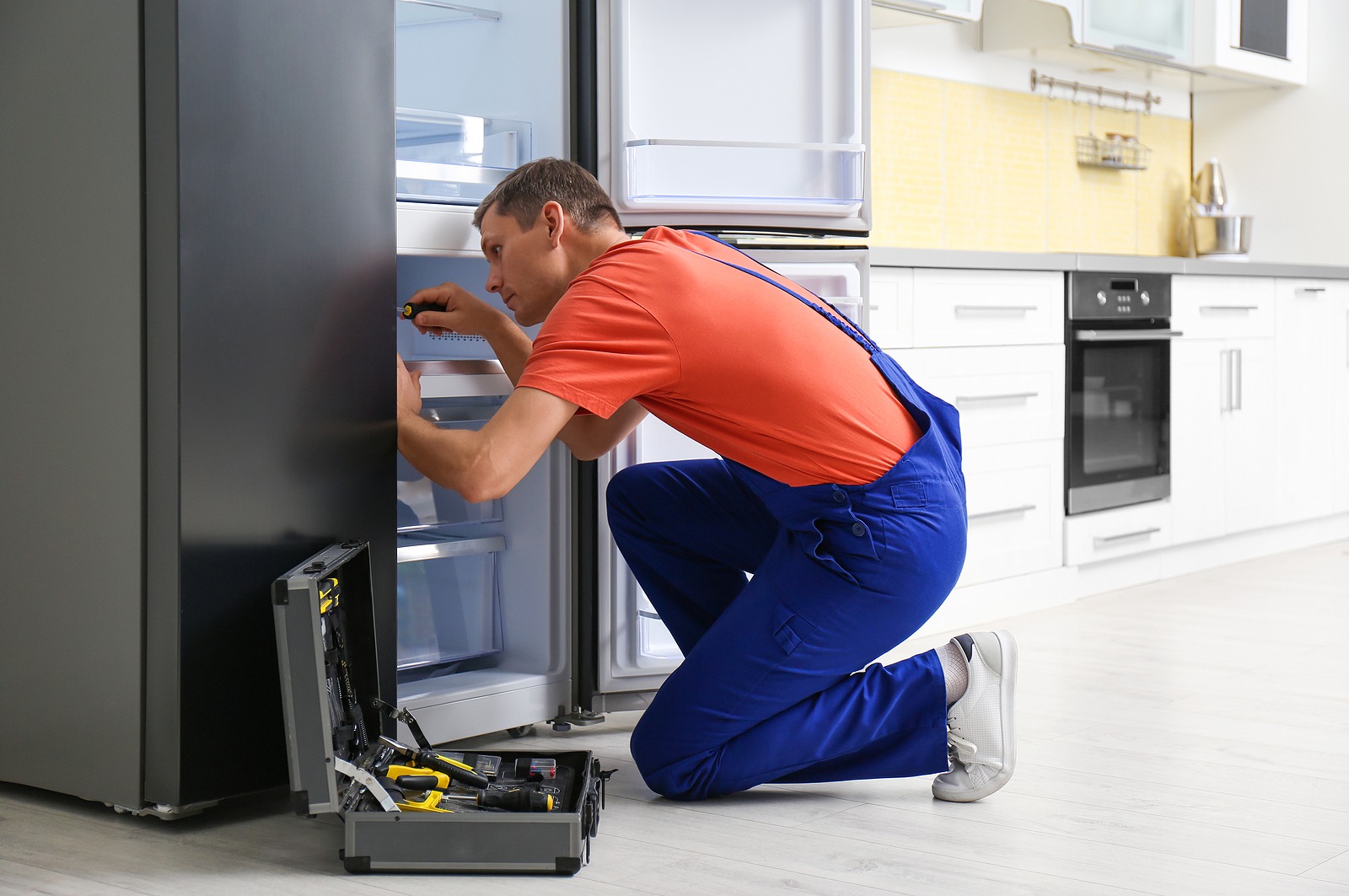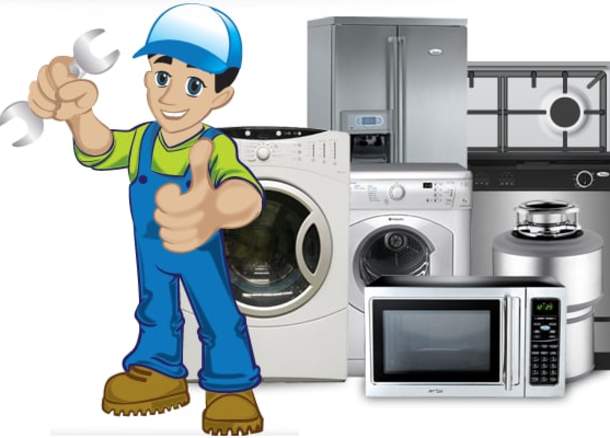Complete DIY Dryer Repair Guide – Dependable Refrigeration & Appliance Repair Service Dryer repair near me
Complete DIY Dryer Repair Guide – Dependable Refrigeration & Appliance Repair Service Dryer repair near me
Blog Article
A Comprehensive Look at Do It Yourself Home Appliance Repair for Homeowners
If you've ever before dealt with a defective home appliance, you recognize how discouraging it can be. Comprehending usual problems and employing the right troubleshooting strategies can conserve you time and money. With the right devices and a little bit of know-how, you could take on minor repairs yourself. When do you understand it's time to call in a specialist? Let's check out the fundamentals of do it yourself appliance repair and what you need to maintain your crowning achievement smoothly.
Recognizing Typical Device Concerns
When your appliances start acting up, it can really feel frustrating, particularly if you're not sure what the problem is. Common problems usually occur with refrigerators, washing machines, and clothes dryers, and recognizing what to search for can save you time and stress and anxiety. If your fridge isn't cooling, check the temperature level settings or pay attention for uncommon noises that may suggest a stopping working compressor.With washing machines, leaks normally stem from used hoses or malfunctioning door seals. If your clothes dryer isn't heating, a clogged up air vent could be the culprit.
Important Tools for DIY Repair Works
Having the right devices can make all the distinction in your do it yourself appliance repair service initiatives. Start with a reliable toolset that includes screwdrivers-- both flathead and Phillips-- since many appliances make use of these types of screws. A tough set of pliers is vital for gripping, twisting, or cutting cords. You'll additionally want an outlet established for getting rid of screws and nuts that hold home appliances together.A multimeter is essential for checking electric links and identifying problems. Don't neglect a degree to assure your devices rest correctly, as this can affect performance. Take into consideration buying a torque wrench for particular tightening demands. An excellent flashlight or job light will certainly help you see right into limited or dark rooms. With these tools in hand, you'll be well-appointed to take on most DIY appliance repairs with confidence.
Troubleshooting Strategies for Home Appliances
Before diving into repair work, it is vital to determine the trouble influencing your appliance. Start by observing any unusual noises, leaks, or mistake codes. Bear in mind of when the problem happens-- does it take place during details cycles or under specific problems? This can use clues.Next, get in touch with the user handbook for fixing pointers. Numerous appliances include a fixing section that might resolve your issue directly. Online resources, discussion forums, and video clips can also provide valuable insights.If you can, carry out easy examinations: for a washing machine, check if the door lock is engaging effectively; for a refrigerator, see if it's maintaining the appropriate temperature.Lastly, don't forget to examine source of power-- guarantee your device is plugged in and that circuit breakers are operating. By systematically tightening down the problem, you'll be much better furnished to deal with the fixing effectively.
Step-by-Step Repair Service Guides for Major Equipments
While you could feel discouraged by the idea of fixing major appliances, adhering to a clear step-by-step overview can make the procedure manageable. Beginning by recognizing the problem-- this might be anything from a fridge not cooling to a washing equipment not rotating. As soon as you have actually determined the issue, gather the required tools like screwdrivers, pliers, and a multimeter.Next, consult your home appliance's guidebook for particular guidelines and layouts. This source can be very useful for recognizing just how to dismantle and rebuild your device securely. Begin the repair service by disconnecting the device and removing any panels or covers. Very carefully inspect parts, changing any faulty parts as needed.After you've finished the repair service, reconstruct the home appliance and test it to validate whatever works correctly. Lastly, keep a document of your repairs for future recommendation. With method, you'll get self-confidence in taking on extra intricate concerns.
Safety Tips for Home Appliance Fixing
Before you start any appliance repair, see to it you're equipped with the appropriate individual safety tools like handwear covers and security goggles. Always unplug the appliance or shut off the source of power to avoid any kind of mishaps. Staying secure is equally as important as finishing the repair service itself.
Personal Protective Tools
When tackling device repair service, it is important to prioritize your safety by wearing the right individual safety devices (PPE) Begin with safety goggles to secure your eyes from debris and prospective dashes. Next, use gloves to protect your hands from sharp sides and unsafe materials. Depending on the appliance, you might additionally need a dirt mask to prevent inhaling dirt or fumes. Sturdy shoes is crucial, also; choose closed-toe footwear to avoid injuries from hefty products. Finally, take into consideration using knee pads if you'll be servicing the flooring for prolonged periods. By equipping yourself with appropriate PPE, you'll decrease threats and focus on the task at hand, ensuring a safer and a lot more effective fixing process.

Source Of Power Precautions
Guaranteeing that an appliance is detached from its source of power is necessary for your safety throughout fixings (Dependable Refrigeration & Appliance Repair Service Dryer repair near me). Before you begin, unplug the device or shut off the circuit breaker. This basic step protects against electrical shocks or mishaps. Constantly ascertain that the power is off using a voltage tester-- don't rely upon presumptions! If you're dealing with larger home appliances, consider using a lockout/tagout system to stop accidental reactivation. Maintain your workspace completely dry and free from mess to minimize threats. Put on shielded handwear covers and use tools with rubber holds to provide additional defense. Never effort repair work in damp conditions, as water and electrical power don't mix. By complying with these precautions, you'll create a much safer setting for your DIY fixing task
When to Call a Specialist

Safety And Security Worries First
Although dealing with DIY device fixings can be fulfilling, it's critical to identify your limitations and prioritize safety. If you run into any type of indications of electric concerns, like stimulates or unusual scents, quit quickly and call a specialist. Don't try fixings involving gas lines or intricate circuitry unless you're completely trained. Constantly unplug appliances prior to servicing them, and use protective gear to secure on your own from potential dangers. If you're not sure about a repair service or feel overloaded, seeking specialist help is the most effective option. Your security is a lot more essential than conserving a couple of dollars. Bear in mind, some fixings can lead to significant injury or more damages to your appliance if not dealt with correctly. Depend on your reactions-- when unsure, get to out for expert aid.
Facility Repair Issues
When devices malfunction beyond standard problems, it's typically best to contact a professional. If your fridge isn't cooling, your washing device won't spin, or your oven will not heat, these troubles can signify much more complicated concerns. Attempting to repair these by yourself can lead to further damage or safety and security hazards. You could run into electric problems, unusual noises, or leaking liquids that call for specialized knowledge and tools. If you're uncertain regarding the fixing procedure or do not have the needed know-how, don't be reluctant to connect for expert assistance. It can save you time, money, and the aggravation of experimental repairs. Relying on a certified service technician warranties your devices are recovered securely and efficiently, allowing you to return to your everyday regimen.
Guarantee Considerations
Before trying any kind of repair work, it's vital to examine if your device is still under service warranty. If it is, you may desire to prevent DIY repair work entirely. Making adjustments or opening the appliance could void the warranty, leaving you in charge of future repairs. Rather, connect to the manufacturer or accredited solution center for professional assistance. They usually have actually educated specialists who can detect and settle problems rapidly. If your appliance is out of guarantee and you feel confident in your skills, you can proceed with DIY repair services. If you're not sure or face complicated issues, calling a specialist is normally the more secure option. Remember, investing in professional help can save you time and stop more damage.
Keeping Your Home Appliances for Long life
To guarantee your home appliances offer you well for years to find, regular upkeep is essential. Beginning by cleaning your home appliances on a regular basis; dust and debris can accumulate and hinder performance. For fridges, examine the door seals and clean the coils to maintain them reliable. Wash your cleaning equipment's drum and dispensers to stop mold and mildew and odors.Don' t forget to evaluate tubes and connections for leaks or wear. For dishwashers, run a cleaning cycle month-to-month to confirm appropriate water drainage and eliminate odors.Keep an eye on any uncommon sounds or efficiency issues-- attending to these early can prevent expensive fixings down the line (Dependable Refrigeration & Appliance Repair Service Washing Machine Repair). Ultimately, describe your device guidebooks for specific maintenance tips and advised service periods. By taking on these methods, you'll not just expand the website life of your appliances however likewise improve their efficiency, conserving you time and cash in the future
Often Asked Questions
What Appliances Are A Lot Of Frequently Repaired by Homeowners?
When it involves do it yourself repairs, home owners usually take on washing makers, dryers, fridges, and dishwashers. You'll discover these appliances are most commonly dealt with since they frequently come across problems and can be workable with standard tools.
Exactly How Can I Discover Home Appliance Repair Work Parts Quickly?
You can find home appliance repair work parts quickly by searching online stores, visiting local hardware shops, or examining supplier internet sites. Do not fail to remember to have your device design number handy to ensure you obtain the best components.
Are There Online Resources for DIY Device Repair Work Videos?
Yes, there are a lot of online resources for do it yourself device repair work video clips. YouTube is an excellent start, together with websites like RepairClinic and AppliancePartsPros, which use detailed overviews to help you fix and repair your appliances.
What Common Mistakes Should I Prevent Throughout Services?
Throughout repair work, prevent rushing your work, skipping safety precautions, or disregarding to review handbooks. Do not presume you understand every little thing; request for help if needed. Constantly keep your work area organized to stop losing tools or parts.
How Can I Inform if a Part Is Well Worth Repairing?
To figure out if a part's worth fixing, assess its price contrasted to replacement. Check accessibility, simplicity of repair, and whether the device's total worth validates the initiative. If repair services cost extra, consider changing it rather.
Report this page